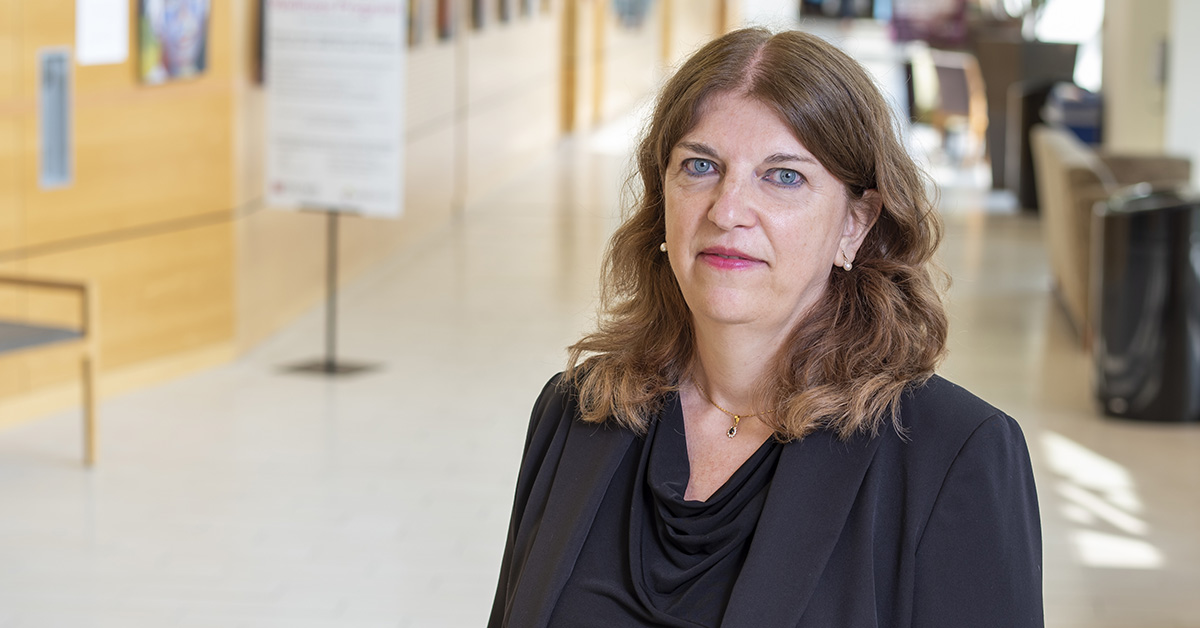Weather Alert: Following the winter storm, all Temple Health hospitals, campuses and clinical locations remain open. Patients will be contacted directly if their visit is affected. Please check TempleHealth.org or FoxChase.org for updates and monitor myTempleHealth for changes to scheduled appointments.
Breadcrumb
- Home
- Fox Chase Cancer Center News
- Fox Chase Researchers Use Liquid Biopsies to Study Genetic Variants in Tumors for Potential Therapies in Breast Cancer
Fox Chase Researchers Use Liquid Biopsies to Study Genetic Variants in Tumors for Potential Therapies in Breast Cancer

PHILADELPHIA (November 18, 2021)—In a recent study using liquid biopsies and tumor tissue biomarkers, researchers at Fox Chase Cancer Center found that PARP inhibitors and PD-1/PDL1 blocking immunotherapy could be considered an effective treatment in eligible inflammatory breast cancer patients.
Liquid biopsies, such as blood from cancer patients, have been used to study the genetic profile of primary tumors. Liquid biopsies are much less invasive than specimens attained through tissue samples taken from tumors. They can provide information on the tumor, such as potential circulating tumor biomarkers, including cell-free DNA (cfDNA). Studies are ongoing to improve the sensitivity of this investigative tool using high output next-generation sequencing.
“The patients we studied were in stages III and IV of inflammatory breast cancer. We looked at the genetic variants of cell-free DNA, and we found a good match with the genetic variants we find in the tumor tissue,” said Sandra V. Fernandez, PhD, a research faculty member for the Breast Cancer Translational Research Disease Group at Fox Chase. Fernandez conducted the study with a team of researchers at Fox Chase and other institutions.
In the study, targeted, next-generation sequencing was performed on cfDNA. This type of DNA consists of fragments of nucleic acids that enter the bloodstream as cells die. There is a proportion of cfDNA known as cell-tumor DNA, which is derived from apoptosis, necrosis, and active secretion from tumor cells.
In this study, genetic variants were studied in cfDNA and paired tumor tissue biopsies from 32 inflammatory breast cancer patients. The authors found a high concordance between these two sampling methods.
Researchers found a high incidence of germline variants in inflammatory breast cancer patients that could be associated with an increased risk of developing the disease. In addition, 31% of inflammatory breast cancer patients showed deficiencies in the homologous recombination repair pathway, making them sensitive to poly (ADP-ribose) polymerase (PARP) inhibitors, a type of targeted cancer therapy.
This work builds on previous studies conducted at Fox Chase showing that genomic profiles measured through cfDNA in the blood of breast cancer patients may provide a more effective way to treat cancer and track its progression.
“The continuing study of liquid biopsies is very important because this is a noninvasive method that allows patients who cannot receive a standard biopsy to still have these genetic tests performed. It gives us the chance to observe genetic variants in these patients and identify the right treatment for specific mutations,” said Fernandez.
“We now have a protocol to study genetic variants in blood from breast, colorectal, and lung cancer patients. The idea is to also study genetic variants in cell-free DNA pretreatment and posttreatment to study if the patient is responding to therapy,” she said.
The study, “Genetic Variants and Tumor Immune Microenvironment: Clues for Targeted Therapies in Inflammatory Breast Cancer (IBC),” was published in the International Journal of Molecular Sciences. The data will also be presented as a poster at the San Antonio Breast Cancer Symposium next month.
Fox Chase Cancer Center (Fox Chase), which includes the Institute for Cancer Research and the American Oncologic Hospital and is a part of Temple Health, is one of the leading comprehensive cancer centers in the United States. Founded in 1904 in Philadelphia as one of the nation’s first cancer hospitals, Fox Chase was also among the first institutions to be designated a National Cancer Institute Comprehensive Cancer Center in 1974. Fox Chase is also one of just 10 members of the Alliance of Dedicated Cancer Centers. Fox Chase researchers have won the highest awards in their fields, including two Nobel Prizes. Fox Chase physicians are also routinely recognized in national rankings, and the Center’s nursing program has received the Magnet recognition for excellence six consecutive times. Today, Fox Chase conducts a broad array of nationally competitive basic, translational, and clinical research, with special programs in cancer prevention, detection, survivorship, and community outreach. It is the policy of Fox Chase Cancer Center that there shall be no exclusion from, or participation in, and no one denied the benefits of, the delivery of quality medical care on the basis of race, ethnicity, religion, sexual orientation, gender, gender identity/expression, disability, age, ancestry, color, national origin, physical ability, level of education, or source of payment.
For more information, call 888-369-2427